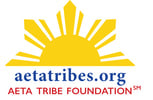September 2016
June, July, and August were the busiest months for the Aeta Tribe Foundation.
June 12th is Independence Day and we participated in a number of festivals as an exhibitor to raise funds and increase awareness of the indigenous Aeta people among the Filipino Americans in the San Francisco Bay Area. We participated in the Pistahan Festival, Adobo Festival, and other smaller festivals.
According to Wikipedia, the Philippine Independence Day was proclaimed on June 12, 1898 between four and five in the afternoon in Cavite, some 30 kilometers south of Manila. However, the declaration was never recognized by either the United States or Spain.
Later in 1898, Spain ceded the Philippines to the United States in the 1898 Treaty of Paris that ended the Spanish-American War. The Philippines Revolutionary government did not recognize the treaty or American sovereignty, and subsequently fought and lost a conflict with the United States originally referred to by the Americans as the “Philippine Insurrection” but now officially called the Philippine-American War. The war ended when Emilio Aguinaldo was captured by U.S. forces, and issued a statement acknowledging and accepting the sovereignty of the United States over the Philippines.
Following the end of World War II, the United States granted independence to the Philippines on July 4, 1946 via the Treaty of Manila. July 4th was observed in the Philippines as Independence Day until August 4, 1964 when Philippine president Diosdado Macapagal signed into law Republic Act No. 4166 designating June 12 as the country’s official Independence Day.
June 12th is Independence Day and we participated in a number of festivals as an exhibitor to raise funds and increase awareness of the indigenous Aeta people among the Filipino Americans in the San Francisco Bay Area. We participated in the Pistahan Festival, Adobo Festival, and other smaller festivals.
According to Wikipedia, the Philippine Independence Day was proclaimed on June 12, 1898 between four and five in the afternoon in Cavite, some 30 kilometers south of Manila. However, the declaration was never recognized by either the United States or Spain.
Later in 1898, Spain ceded the Philippines to the United States in the 1898 Treaty of Paris that ended the Spanish-American War. The Philippines Revolutionary government did not recognize the treaty or American sovereignty, and subsequently fought and lost a conflict with the United States originally referred to by the Americans as the “Philippine Insurrection” but now officially called the Philippine-American War. The war ended when Emilio Aguinaldo was captured by U.S. forces, and issued a statement acknowledging and accepting the sovereignty of the United States over the Philippines.
Following the end of World War II, the United States granted independence to the Philippines on July 4, 1946 via the Treaty of Manila. July 4th was observed in the Philippines as Independence Day until August 4, 1964 when Philippine president Diosdado Macapagal signed into law Republic Act No. 4166 designating June 12 as the country’s official Independence Day.
